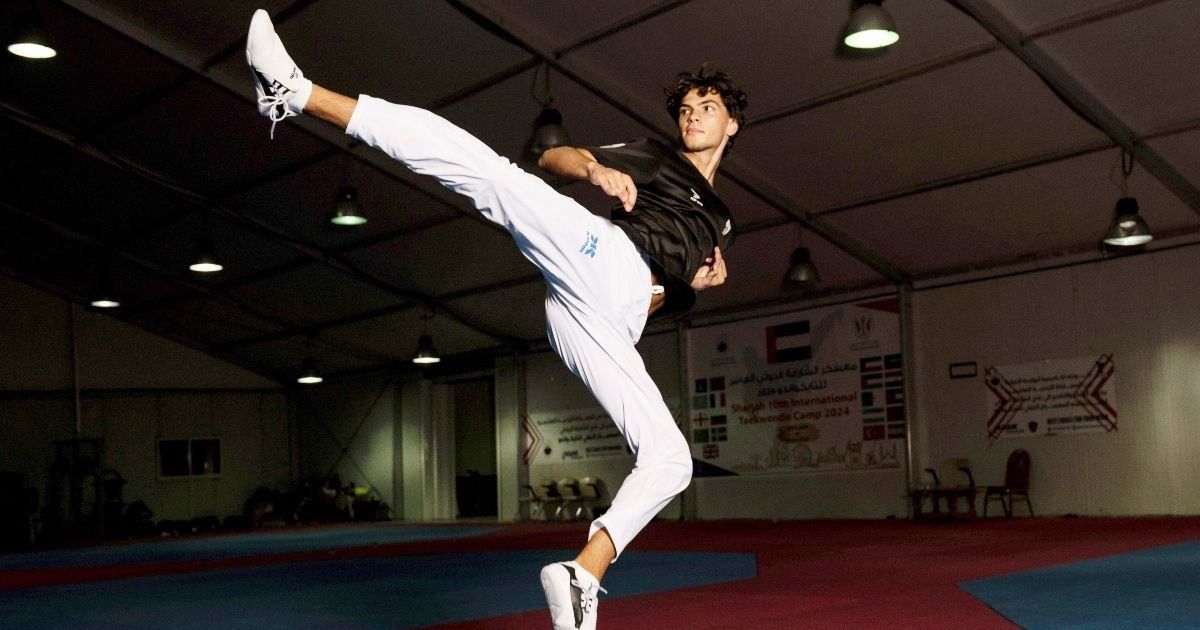PARIS.- Most of the athletes who will represent the Palestinian territory in the Paris Olympics They were born elsewhere—Saudi Arabia, Dubai, Germany, Chile, and the United States—but they care deeply about the politics of the nation where their parents and grandparents were born.
They are excited to compete, but they acknowledged that their presence at the Games is not just about sport. With the outbreak of a war between Israel and Hamas that has killed tens of thousands of people in Gaza, these eight athletes — two of whom are from the West Bank — bear a heavy responsibility.
Swimmer Yazan Al Bawwab, 24, was born in Saudi Arabia and lives in Dubai. He says he does not expect to be recognized for his performances in the pool, but rather says that swimming is “a tool for Palestine.”
“Unfortunately, no one has asked me about my skills. No one cares,” admitted Bawwab, whose parents were born in Jerusalem and Lod, the city that is now in central Israel. “I will be completely honest: France does not recognize me.” Palestine as a country. But I will be there, raising my flag. That is my role.”
Oman Ismail, who was born in Dubai to parents from the West Bank town of Jenin, has loftier sporting ambitions. Shortly after securing his ticket to the taekwondo qualifying tournament in China, the teenager said his goal was gold in Paris.
But even if he doesn’t win, Ismail knows his mere participation symbolizes something bigger.
“I represent the identity of the Palestinian people, their tenacity,” Ismail said. “I would like to inspire the children of Palestine, to show them that everyone can achieve their goals, to give them hope.”
But even under the best of circumstances, it is difficult to maintain a vibrant training programme in Gaza, the West Bank and Jerusalem. Nine months of war have made it nearly impossible.
Nearly all of the country’s infrastructure, clubs and institutions have been destroyed, said Nader Jayousi, technical director of the Palestine Olympic Committee.
“Do you know how many approved swimming pools there are in Palestine? Zero,” said Bawwab, who acknowledged that the Palestinian economy is too small and fragile to consistently support the development of high-performance athletes. “There is no sport in Palestine.”
The Palestinian diaspora has always played an important role in the Olympic Games and other international competitions, Jayousi acknowledged.
Particular case:
Jayousi said this is not the first time that most of the athletes representing the Palestinian committee have come from elsewhere.
More than 38,000 people have been killed since the war in Gaza began, according to local health officials. Among the dead were about 300 athletes, referees, coaches and other sports figures from Gaza, Jayousi added.
Perhaps the most famous athlete to die in the war was long-distance runner Majed Abu Maraheel, who in 1996 became the first Palestinian to compete in the Olympics. He died of kidney failure earlier this year because he was unable to receive treatment in Gaza and could not be evacuated to Egypt, Palestinian authorities confirmed.
Only one Palestinian athlete, Ismail, qualified for Paris on his own merits. The other seven earned their ticket under a wildcard system awarded as part of the universal quota and supported by the International Olympic Committee. It allows athletes representing poorer nations and those with less established sports programs to compete, even if they meet the sporting criteria.
Palestinian athletes will participate in boxing, judo, swimming, shooting, athletics and taekwondo.
Source: AP

